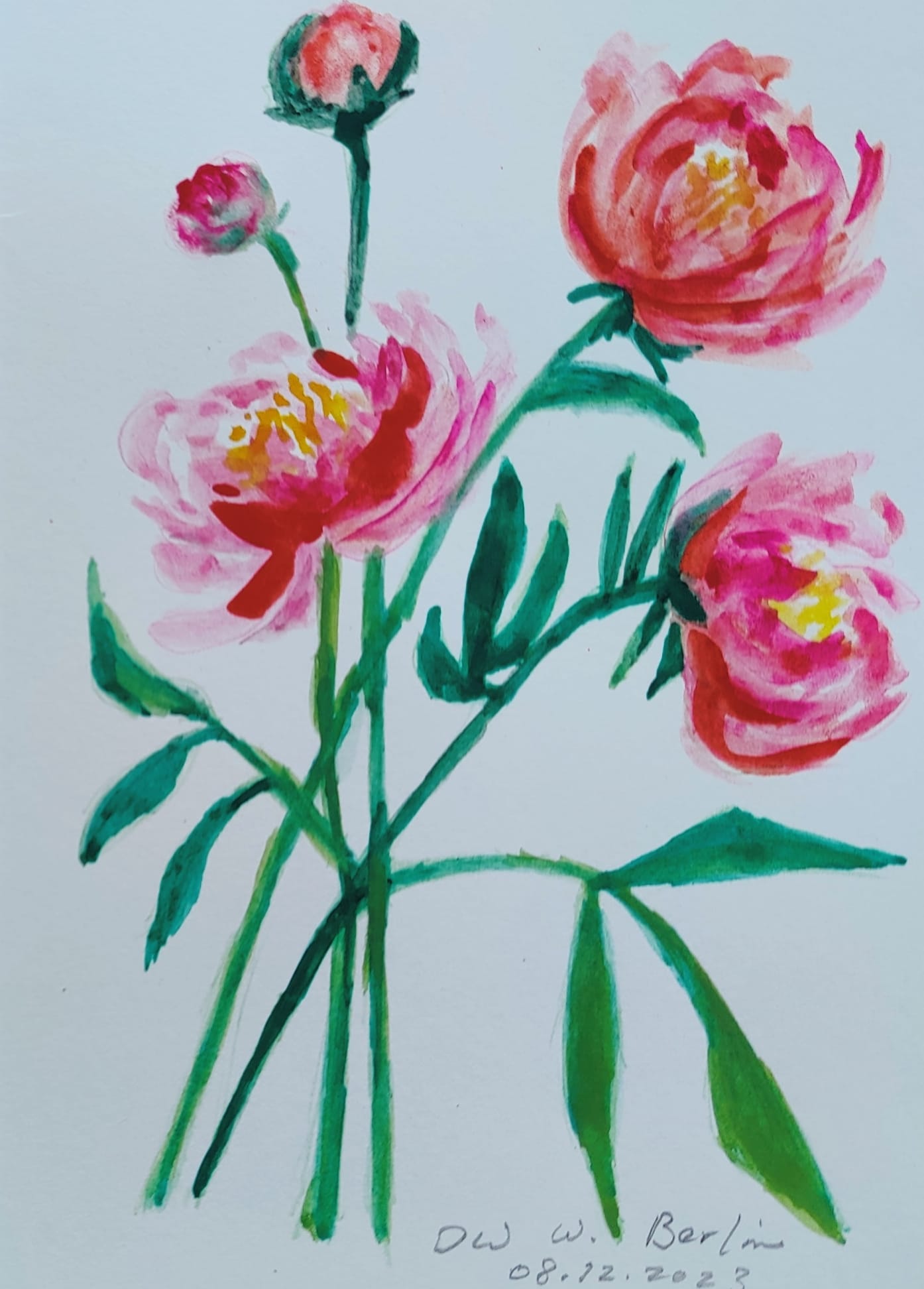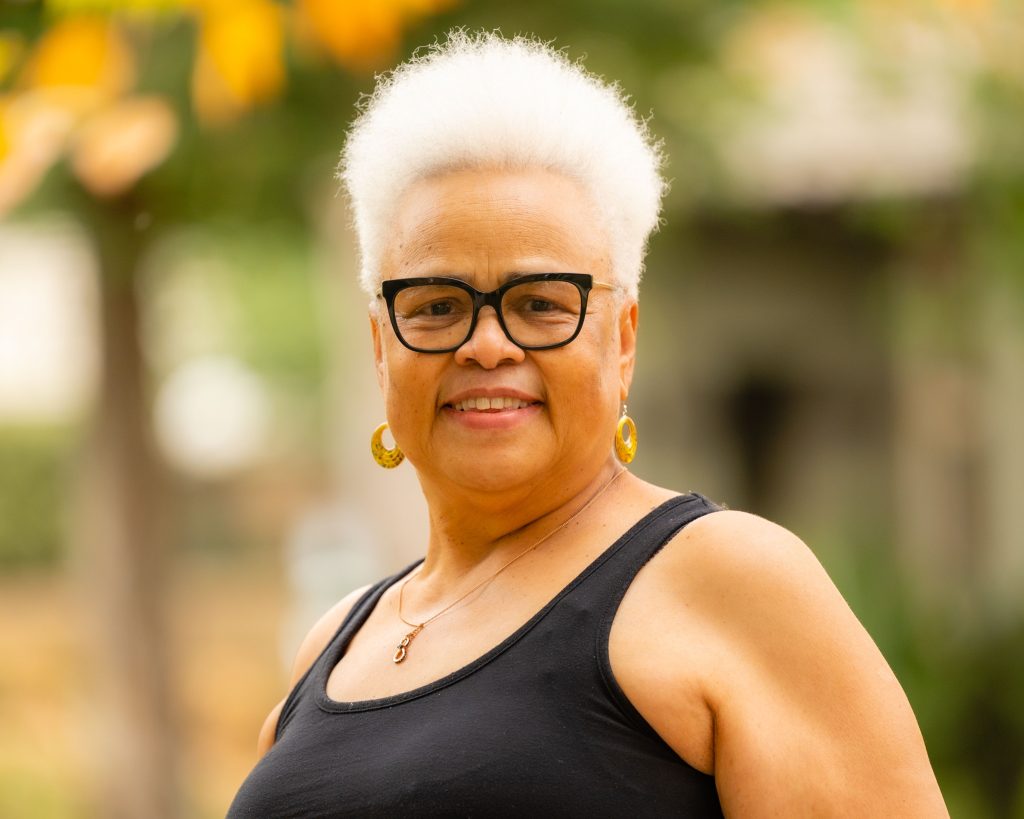by Dr. Dong WANG vom Niederrhein, Ph.D.
(she/her/hers)
“Feeling is deep and still; and the word that floats on the surface.
Is [sic] as the tossing buoy, that betrays where the anchor is hidden.
Therefore trust to thy [your] heart, and to what the world calls illusions.”
—Henry Wadsworth Longfellow (1807-1882), Evangeline: A Tale of Acadie
There is something paradoxical about home, in seeking refuge from the troubles of the “world.” When I recently found new forms of peace and consolation from oil and watercolor painting, drawing and kayaking/canoeing, they were automatically added to my list of hobbies like baking, swimming, hiking, cycling and practicing classical guitar as anchors of the mind. Finding both my own rhythm of living and sense of value and beauty is home to me in Northwest Germany, for that is the only point from where I can chart the world, on-site and/or imagined. By contrast, homecoming in the physical sense, the well-trodden sentimental journey back to roots, is yet another unnerving encounter with reality and even less a moral grounding for calmly contemplating the world, at least for me.
Publishing my course book in 2023, Tse Tsan Tai (1872–1938): An Australian-Cantonese Opinion Maker in British Hong Kong (Wang, 2023), was a different type of homecoming: Tse Tsan Tai and his self-identification invited me into a century-old universe that, for better or worse, revised morals and beliefs that may serve as fresh beacons today.
Tse’s life was deeply involved with revolution and the legitimization of old and new political power partly embodied by the mixed Chinese and/or “Chinese” diaspora like Tse himself. My book examines his legacy and puts his own testimony and moral judgement into a historical context. Tse was a colonial cosmopolitan who straddled worldviews, nationalisms, scientific endeavors, and religious ideals. In so doing, I tore him out of the ideologically driven historical narratives in the Republic of China (ROC, 1912–present in Taiwan) and the People’s Republic of China (PRC, 1949–present) that brushed/brushes him off as an oddball. A multifaceted, spirited, and creative individual, Tse defied/defies not only partisan historians, but also the asphyxiating expectations of the post-colonial gaze that still prevails today.
Tse’s story allows us to touch base, so that we can get real about ideas that are floating around today: The moral attribute of nations, freedom, ideologies, markets, wars, and rightful political rule. For example, Tse, an express Christian baptized in Australia, dwelled briefly on the Mandate of Heaven (天命, tianming) in the Qing Manchu/Chinese dynasty—the first reign name of imperial Qing China (1644-1911/1912) before the Manchu forces took over Peking in 1644 in cooperation with the locals. Tianming is a term that has entered general knowledge as meaning legitimate rule/governance. Tse believed that the Qing rulers/usurpers, “Manchu”/“non-Chinese,” had been unlawful and unfit since the very beginning, that Nurhachu/Nurhaci (b. 1559-1626), the first Qing emperor, revealed his base character when Nurhaci named his reign as “Chinese” tianming (“mandate of heaven”) – a self- and illegitimate claim to power in China, according to Tse who advocated and participated in toppling the Qing regime in China through military and non-military means. In other words, the rulers/ruling parties, the ruled/the people/s, the land/country, and the ruling states/governments in China were totally different things to Tse Tsan Tai.
In the 1910s, when Frank Johnson Goodnow (b. 1859-1939), a jurist from the United States, helped write the Constitution of the Republic of China (1912-present in Taiwan), he predicted that China was about to become a military dictatorship, and his advice to avert this was to bestow “the most important classes, such as the merchants, the literary class and the larger property owners” (Wang, 2023, p. 32) a role in the legislative bodies. Goodnow argued that power sharing or stake-holding self-interest was a precondition for exerting political power. In other words, for Goodnow, taking the American Constitution as a model and aggregating the political will among self-interested individuals who could act within formal laws with separation of power, checks and balances, as well as freedom of speech, was the way forward in the Republic of China.
Tse’s approaches differed from Goodnow’s. His ideals were probably best expressed in the slogan ducit amor patriae 盡心愛國 (Love of country leads me) of his revolutionary headquarters in Pak Tze Lane, Hong Kong (Wang, 2023, p. 112). When Tse observed the behavior of Sun Yat-sen, Yuan Shih-kai, perhaps Chiang Kai-shek, and others, he realized that their political ambition did not meet the complete moral dedication needed. For Tse, the “wholehearted patriotism” was an obvious reference to Mencius’ chin-hsin (jinxin, 盡心), which associated legitimate governance or moral statehood with the ruler’s total commitment and benevolence as an existential and moral imperative. But Tse’s demand went further than this.
Tse Tsan Tai believed that the Christian home, the Garden of Eden, had been in Xinjiang and that the Chinese were close heirs to the Kingdom of God, so China should become a Christian democracy. On the other hand, as an Australian-born who spent the first seventeen years of his life in Australia before moving to British Hong Kong for good, he regarded Sun Yat-sen (b. 1866-1925), Yuan Shikai (b. 1859-1916) as well as other leaders who emerged in his time as lacking the moral habitus (der Habitus, bearing) to lead his “homeland” China, the moral compass not just of Confucian benevolence but of creating true democratic institutions.
Dong WANG (she/her/hers, Ph.D.) vom Niederrhein (the Lower Rhine of Germany) is collection editor of Asian Studies at Lived Places Publishing (New York), a member of the Royal Institute of International Affairs, an elected Fellow of the Royal Asiatic Society of Great Britain and Ireland, and vice chair of the Association for Asian Studies’ Editorial Board. Her single-authored books in English are: Tse Tsan Tai (1872–1938): An Australian-Cantonese Opinion Maker in British Hong Kong (Lived Places Publishing New York, 2023), The United States and China: A History from the Eighteenth Century to the Present (Rowman & Littlefield, 2nd and rev. ed. 2021; 1st ed. in 2013), Longmen’s Stone Buddhas and Cultural Heritage: When Antiquity Met Modernity in China (Rowman & Littlefield, 2020), Managing God’s Higher Learning: U.S.-China Cultural Encounter and Canton Christian College (Lingnan University), 1888–1952 (Rowman & Littlefield, 2007), and China’s Unequal Treaties: Narrating National History (Rowman & Littlefield, 2005).
Her book, Tse Tsan Tai (1872–1938): An Australian-Cantonese Opinion Maker in British Hong Kong is available for purchase now.
For Faculty
Please request a digital exam copy of Dr. Wang’s book if you’d to consider it for your course. Your campus bookstore can place an order – or your campus library can make this and other titles accessible at no additional cost to your students. Please forward to your collection librarian or library liaison.
For Librarians
We deliver our titles in library-friendly access models with a focus on DRM-free and unlimited usage models. Our ebooks are available through large library vendors (e.g. ProQuest) and in a complete 40-title collection direct from the publisher.
Add this book to your institution’s collection: https://livedplacespublishing.com/librarians
For Authors
Call for Proposals: Dr. Wang is seeking empirically-driven manuscripts of 30,000-60,000 words that bear individual and/or collective voices with compelling lived stories involving Asia, the Asian diaspora, and/or others living in Asian places.
For more on her vision and Proposal Guidelines: https://livedplacespublishing.com/asian-studies
We want our books to be available to as many people as possible. If you’d like to purchase an individual copy, please email us and we’ll give you a discount code:
IMAGE CREDIT: Dong Wang, “Peonies in West Berlin,” Watercolor 2023-08-12, 30th anniversary of flying to Kansas City on U.S. Pew Charitable fellowship of 1993-97.
OPENING QUOTE: Evangeline: A Tale of Acadie by Henry Wadsworth Longfellow, first published in 1847, Halifax: Nimbus Publishing, 2003, p. 67.



